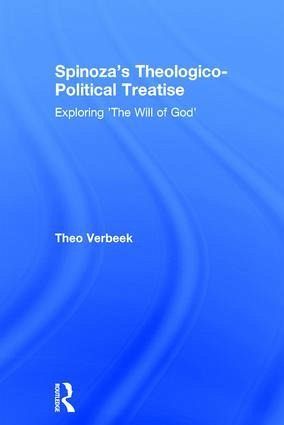
Spinoza's Theologico-Political Treatise
Exploring 'The Will of God'
Versandkostenfrei!
Versandfertig in 1-2 Wochen
168,99 €
inkl. MwSt.
Weitere Ausgaben:

PAYBACK Punkte
84 °P sammeln!
This text attempts to unravel "Theologico-Political Treatise", a work set apart from the rest of Spinoza's oeuvre because of the specific difficulties it poses for the reader. It also discusses the nature of the text as it reflects Spinoza's citizenship and experience.
This book presents the first accessible analysis of Spinoza's Tractatus Theologico-politicus, situating the work in the context of Spinoza's general philosophy and its 17th-century historical background. According to Spinoza it is impossible for a being to be infinitely perfect and to have a legislative will. This idea, demonstrated in the Ethics, is presupposed and further elaborated in the Tractatus Theologico-politicus. It implies not only that on the level of truth all revealed religion is false but also that all authority is of human origin and that all obedience is rooted in a political structure. The consequences for authority? as it is used in a religious context are explored: the authority of Scripture, the authority of particular interpretations of Scripture, and the authority of the Church. Verbeek also explores the work of two other philosophers of the period - Hobbes and Descartes - to highlight certain peculiarities of Spinoza's position, and to show the contrasts between their theories.










![Second Treatise Of Government [Hardcover] John Locke - (Deluxe Hardcover Book) Cover Second Treatise Of Government [Hardcover] John Locke - (Deluxe Hardcover Book)](https://bilder.buecher.de/produkte/73/73225/73225220n.jpg)


